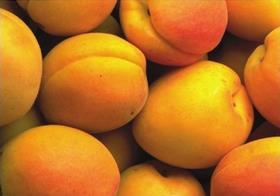
An announcement by the US Animal and Plant Health Inspection Service (APHIS) that South African apricots are now permitted in the US is expected to have little impact on current export markets.
APHIS announced last week that South Africa's apricots, sweet cherries and plumcots can, in future, be exported to the US. However, given previous experience with the other South African deciduous fruit products cleared for import to the US market, the regulations and requirements attached may be such that it is nearly impossible to take advantage of the opportunity.
South African industry leaders have scoffed at the idea that the country's apricots will soon make an appearance on the US market as a result of the decision.
'I think for the near future the chances of exports of South African apricots to the United States are very slim,' says Jacques du Preez, stonefruit product manager at Hortgro. 'The import requirements, combined with a shipping voyage which is a week longer than to Europe, will test the resilience of apricots to the limit. I think the risk and cost is too high at the moment, but this may change in future.'
He adds that the present South African apricot range and size distribution does not really suite the US market: 'We do not produce the largest fruit in South Africa and the only variety that can possibly work is Imperial.'
Stonefruit specialist Leon von Mollendorf notes he is under the impression that the US market also favours red-blushed varieties when it comes to fresh apricots, explaining that the South African breeding programme will release its first red-blushed cultivar next year.
'It is called Rustic and we will first have to see how it does in the UK and EU markets,' von Mollendorf says. 'Not all the existing South African varieties will automatically be accepted in the US market or have the shelf life to survive the longer cold treatment period.'
South Africa exports less than 1m cartons of apricots annually. The category is predominantly aimed at canning and processing in South Africa and fresh exports have always remained below the 1m-carton mark.



